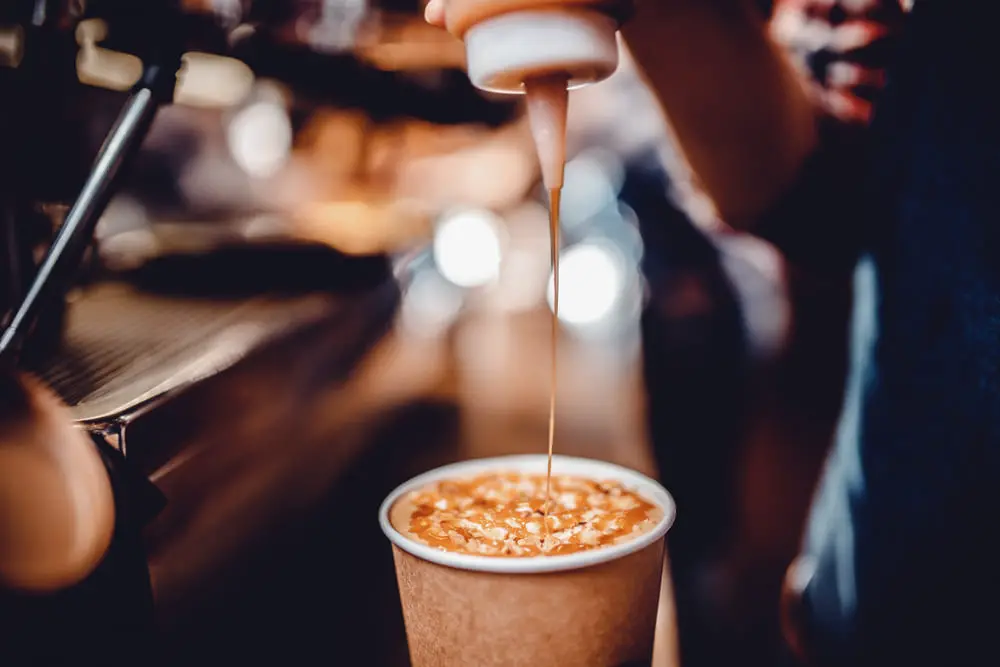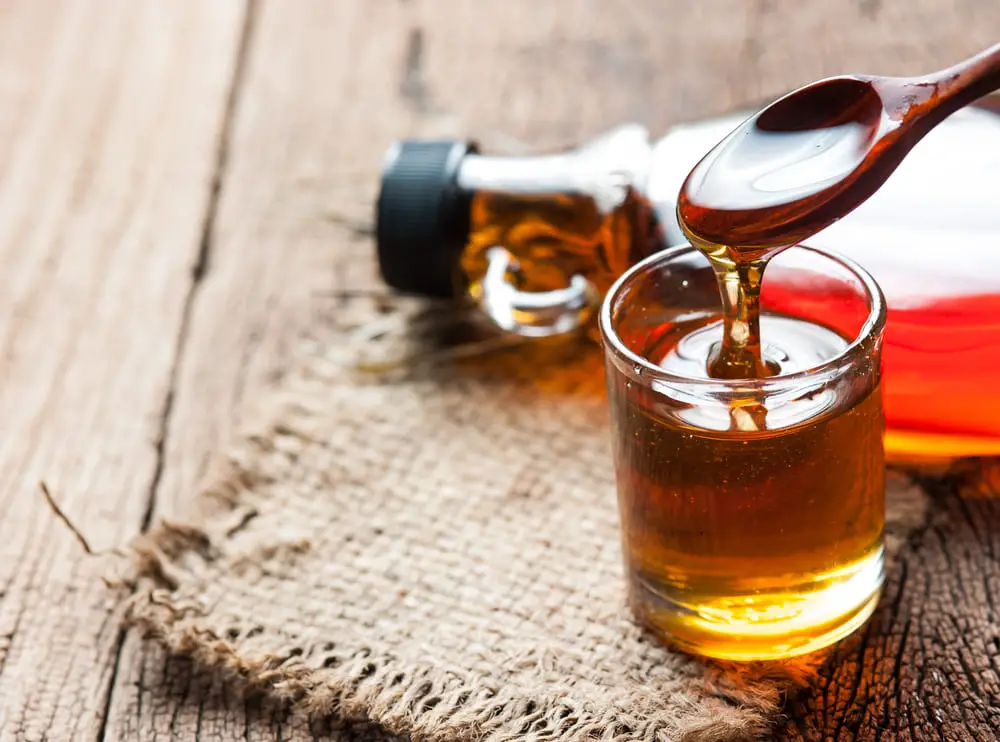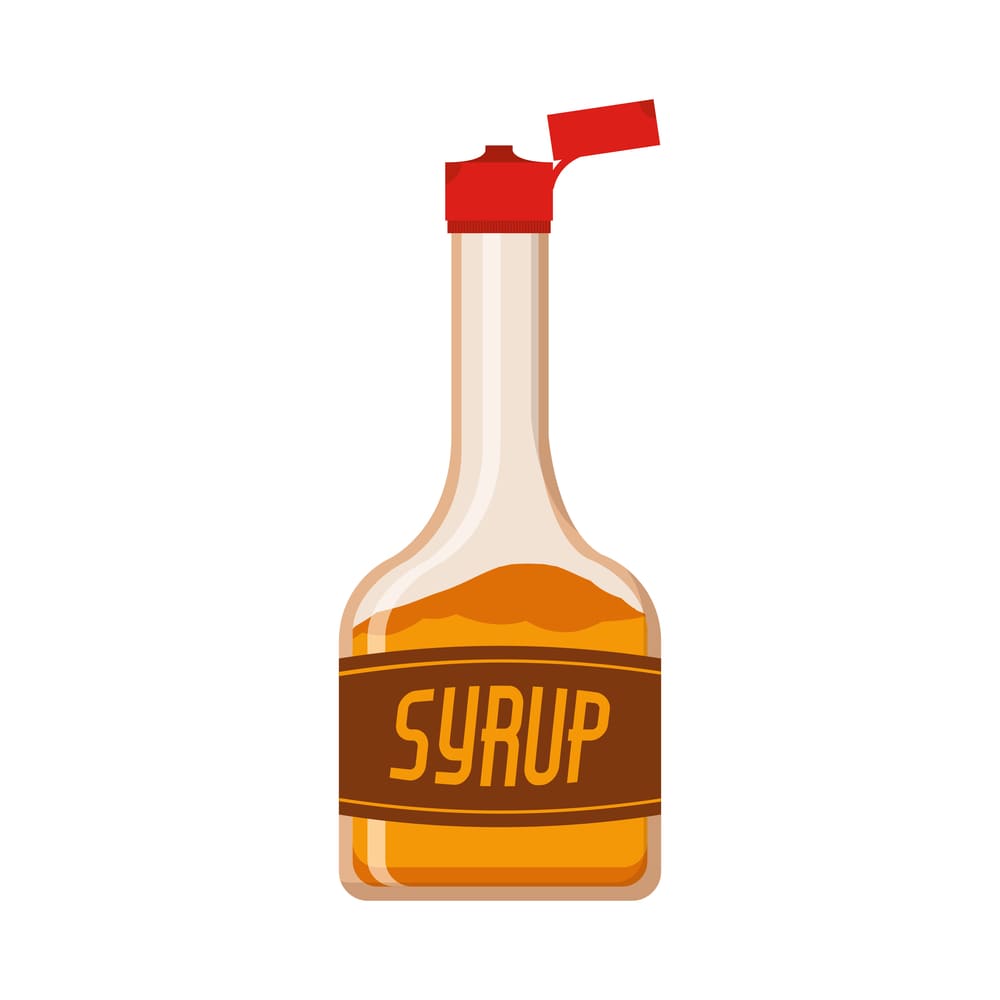
Coffee is a familiar drink in any part of the world. Over time, coffee has had many improvements and is no longer just the original black coffee cups. The ingredients for making a cup of coffee today can be very diverse, ranging from fresh ingredients around us to convenient pre-packaged ingredients.
Syrup – is a familiar ingredient for those who love to enjoy delicious coffee. Syrup, also known as syrup, has a sweet taste that can describe the taste of familiar natural ingredients. Today, syrup is preferred use because of its convenience, speed, and longevity compared to using fresh ingredients. However, have you ever wondered how long the syrup will last, but how long does it last? This article will give you specific information to answer the question “How long do coffee syrups last?“
What Is Syrup?

Syrup, also known as syrup, is an ingredient often used in beverage recipes to sweeten or add sugar. The syrup has a viscous liquid texture, has a sweet taste, has many colors, and is very diverse in scent (caramel, tiramisu, mint, blueberry, chestnut, …) Currently, there are many famous syrup brands. are very popular in the world such as Monin, Torani, Teisseire, DaVinci… It is worth it that the syrup market today has a variety of flavors enough for you to choose the right scent.
But if you want to refer to syrup for making coffee, the most commonly used syrup flavors are caramel flavor, vanilla flavor, malt flavor, chocolate flavor,…
Ingredients For Making Syrup Used In Coffee Making
Used as a sweetener in coffee, the syrup is usually a liquid solution made from fruit juices, essential oils, floral flavors, and sometimes alcohol and sugar. Therefore, the syrup can perfectly simulate the taste of fresh ingredients. Combining Syrup with coffee is no longer a strange thing, syrup can balance the acidity and bitterness of coffee and create a perfect drink.
How Long Does Coffee Syrup Keep After Opening?
If properly stored in a clean, dry place, at room temperature between 18-27°C, the quality of Syrup after opening will be guaranteed for 3 to 6 months or possibly up to 12 months. At the ideal temperature, bacteria, fungi as well as other small organisms have little chance to grow and at the same time, the nutrients in the syrup will be preserved and not changed.
In addition, if you use an additional pump or pour spout, the retention time will be a little shorter, from 1-2 months. The reason for this is that bacteria and mold can enter directly through the opening on the pump and pour spout.
For simple syrups with only water and sugar ingredients, often used to replace granulated sugar, the time to be opened after opening is usually shorter than other syrups. Simple syrup with a ratio of 1 water: 1 sugar should usually be used only 1 month after opening. As for the simple syrup mixed with a more concentrated ratio of 1 water: 2 sugar, it can be kept for up to 6 months after opening.
Syrup stored in high-quality glass or plastic bottles will last longer than bottles made of metal and wood.
How To Know If The Syrup Is Showing Signs Of Spoilage?

To get the right cup of coffee, the careful selection of ingredients, specifically syrups, is very important. That’s why it’s so important to recognize syrups that show signs of spoiling. The normal syrup has a smooth texture quite similar to honey, the flavor will be characteristically fragrant according to the ingredients that produce that syrup. As for the syrup showing signs of deterioration, its color gradually turns opaque, which is different from the original color.
In addition, there may be signs of scent, the smell of broken syrup will be foul, no longer retain the characteristic aroma of essential oils and fruits.
How Long Does Unopened Syrup Last?
Depends on the expiry date given by the manufacturer, but rest assured that most syrups have a rather long shelf life. Some famous syrup brands have a best before date printed on the bottle which means that the best syrup quality is within this period. In a word, syrup, if left beyond the date printed on the package, can still be used if there is no problem of damage, but the deliciousness and nutritional value will not be guaranteed by the company.
If I Use Syrup For More Than The Ideal Time, Will I Get Sick?
As discussed above, if the syrup has not been damaged, it will not affect health when used. After the ideal time to use, its quality will no longer be guaranteed, if you still use that syrup to prepare it, it will affect the taste of the coffee cup. If the syrup has shown signs of deterioration or deterioration, do not continue to use it because it may affect your health.
How To Store To Keep The Quality Of Syrup For The Longest Time After Opening:
Store Syrup in a cool place, ideally between 18-27°C. Sometimes the refrigerator is not necessary because there are some types of syrup, if the temperature is too low, it can crystallize into tiny particles that settle on the bottom of the bottle similar to the honey that people have a habit of calling. is a sugar deposit.
To best preserve Syrup, it is recommended to store the syrup in a high-quality glass or plastic bottle. Avoid using metal or wooden jars to store syrup as this can cause loss of flavor as well as loss of nutrients.
Avoiding sunlight is essential to avoid denaturing and discoloring the syrup.
Do not allow water or air to enter the syrup bottle as this will easily damage the syrup. Therefore, if you use the syrup in the form of a bottle with a pump nozzle, the tip of the spout should be closed or wrapped in foil when not in use.
The time to use syrup after opening the lid depends heavily on storage conditions and whether or not the pump nozzles and pouring nozzles are used. The ideal storage conditions are to avoid humid places or places exposed to direct heat or sunlight. Stored under these conditions syrup can keep quality for 3-6 months after opening. Please check the quality of syrup before using it. If using a pump or a drawstring, the lid should be tightly closed after use to avoid microorganisms and mold having the opportunity to come into contact with the syrup.
